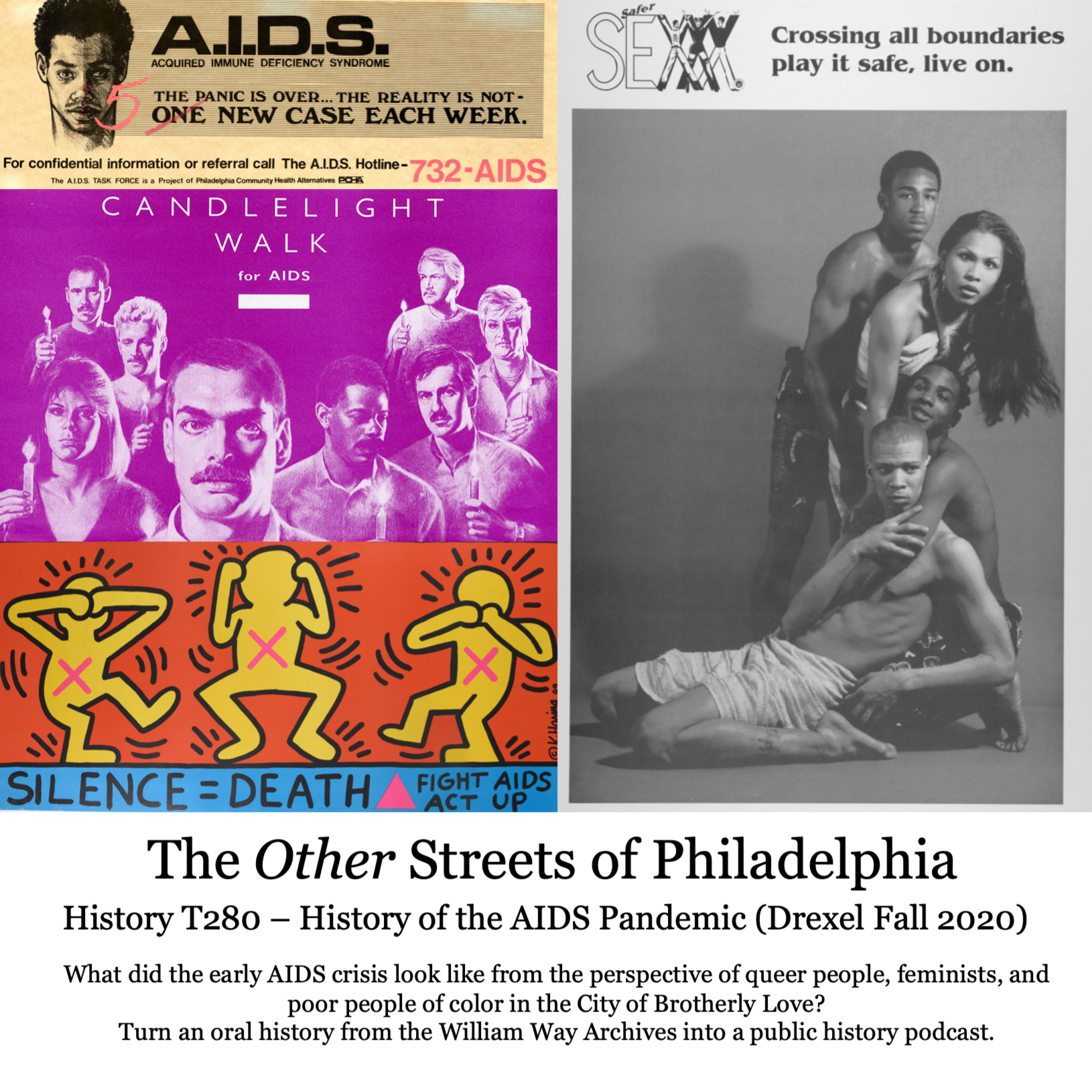

Season 1, Episode 1 - Not Just A White, Gay, Men’s Disease: The value of addressing color and class during the AIDS/HIV epidemic in Philadelphia
Rashidah Hassan Abdul Khabeer was working as a nurse when she came across her first AIDS patient. Overwhelmed with the responsibility of explaining this new, deadly virus to unsuspecting patients who were unaware of the course of the disease, she began to speak out and educate about AIDS. Rashidah knew most people dying from AIDS were from Black and other minority communities and knew they needed a strong voice. Before exploring Rashidah’s activism, this episode gives context to Rashidah’s work by looking at common news clips during the time. These news clips show listeners how the disease was portrayed. Often this included misunderstandings about the virus, who could be affected, and how it was transmitted. Not only was media affecting how AIDS was being represented, but President Reagan was also greatly changing how the response to this disease was being taken care of. This context is important to understanding why Rashidah felt the need to do the work she did. She knew she has to change the narrative that was being told and make sure the communities that were being affected the most would be known.
Rashidah’s activism stems in part from her religion. Being Muslim, the connection to the Nation of Islam, Malcolm X, and the civil right movement inspired her to start work in public health. She states that the opportunities provided by the civil rights movement was partially what enabled her to go to nursing school. Rashidah Hassan started off as a nurse working in a hospital helping AIDS patients and working within the infection control unit. From her experience as a nurse, and what she saw during the AIDS crisis, she knew that work had to be done to educate the public on the AIDS virus and to improve the experience of AIDS patients in medical facilities. After creating manuals for hospitals which outlined the proper ways to deal with AIDS patients, Rashida decided to take on activism in order to focus her efforts where she saw fit. She worked with several organizations advocating for the African American community in particular. Right form her nursing career she worked with the Philadelphia AIDS task force. Soon after she publicly resigned and she went on to create her own organization, BEBASHI (Blacks Teaching Blacks About Sexual Health Issues) where she aimed to spread information on AIDS and other sexual health topics throughout the black community. Dan Royles, who wrote about Rashidah in his book To Make the Wounded Whole: The African American Struggle Against HIB/AIDS, speaks about Rashidah and how BEBASHI stood out early on. Rashidah’s work not only aided those who needed support and medical care, but it was the first organization of its kind, and helped make way for other similar organizations. Rashidah’s work differed from other activists, but each had their own personal issue and community that they wanted to help. Rashidah’s work was made successful by her outgoing personality which she often showed off in order to bring attention to the education that she was providing. Rashidah’s brave strides during her time as an activist paved the way for many other organizations that aimed to help mainly communities of color who, despite being disproportionally affected by AIDS, were not receiving proper treatment.
Timecode Guide:
Podcast Host Introduction: [00:00:00 – 00:05:50]
Introduction: [00:06:10 – 00:09:35]
Historical Context: [00:09:47 – 00:14:26]
Rashidah’s Early Career: [00:14:44 – 00:20:12]
Early Days of BEBASHI: [00:20:22 – 00:25:12]
Rashidah’s Impact: [00:25:30 – 00:31:10]